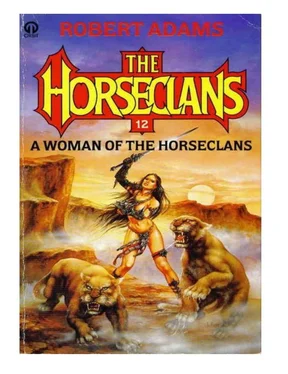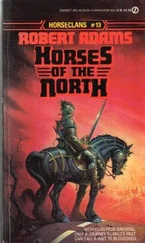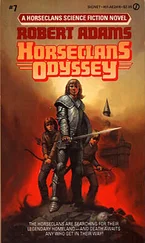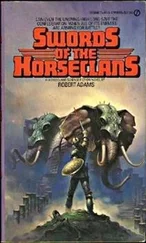Robert Adams - A Woman of the Horseclans
Здесь есть возможность читать онлайн «Robert Adams - A Woman of the Horseclans» весь текст электронной книги совершенно бесплатно (целиком полную версию без сокращений). В некоторых случаях можно слушать аудио, скачать через торрент в формате fb2 и присутствует краткое содержание. Жанр: Фантастика и фэнтези, на английском языке. Описание произведения, (предисловие) а так же отзывы посетителей доступны на портале библиотеки ЛибКат.
- Название:A Woman of the Horseclans
- Автор:
- Жанр:
- Год:неизвестен
- ISBN:нет данных
- Рейтинг книги:4 / 5. Голосов: 1
-
Избранное:Добавить в избранное
- Отзывы:
-
Ваша оценка:
- 80
- 1
- 2
- 3
- 4
- 5
A Woman of the Horseclans: краткое содержание, описание и аннотация
Предлагаем к чтению аннотацию, описание, краткое содержание или предисловие (зависит от того, что написал сам автор книги «A Woman of the Horseclans»). Если вы не нашли необходимую информацию о книге — напишите в комментариях, мы постараемся отыскать её.
A Woman of the Horseclans — читать онлайн бесплатно полную книгу (весь текст) целиком
Ниже представлен текст книги, разбитый по страницам. Система сохранения места последней прочитанной страницы, позволяет с удобством читать онлайн бесплатно книгу «A Woman of the Horseclans», без необходимости каждый раз заново искать на чём Вы остановились. Поставьте закладку, и сможете в любой момент перейти на страницу, на которой закончили чтение.
Интервал:
Закладка:
Tears streaking her lined cheeks, Lainuh withdrew from her husband’s mind and beamed an urgent call to her brother, the chief, and to old Djef Krooguh, the clan bard. The chief must know immediately of the death of his nephew and the bard must know the full extent of the act of lonely heroism of the dead boy, that he might compose the verses for the funeral and add appropriate lines to the Song of Krooguh so that her son’s honorable deeds would be recalled and reverenced by the generations that would follow.
That evening, the woodcutters came back with their carts heaped high, and early the next evening Djahnee was sent to Wind—a simple ceremony, followed by cremation of the body. Tim was often to remark sadly in later years that they might have better made a larger pyre and waited a few days.
Actually, it was somewhat longer a period—nearly three weeks—before Milo and his raiders returned, all dusty and exhausted some wounded, but all heavy-laden with assorted loot and wildly exuberant. But not all of them came back from that raid; there were a handful of empty saddles. There was also a litter swung between two mules, and in that litter lay what was left of Dikee Staiklee of Krooguh, barely alive.
When she got her first close look at what the litter bore, Lainuh Krooguh mindspoke Tim, saying. “My son, go at once to your uncle. Tell him to begin with you immediately, for only you now are left to be chief in his stead.”
Turning back to Dikee, she tried to enter his thoughts, but found only the confusion of intense pain and semi-consciousness, and she felt even more strongly that his spirit was upon the very edge of taking flight from his tattered, battered husk.
“What happened?” she demanded of no one in particular.
Milo himself answered tiredly. “The Dirtman village is surrounded with a palisade. We had set afire the gate tower and three others and were battering in the gate with a trimmed treetrunk slung between armored horses, all supposedly ready to rush in immediately the gate sundered or fell.
“Then Dikee and certain others—most of them now either wounded or gone to Wind—took it into their heads to scale an undefended section of palisade and try, I suppose, to hack their way through to the gate, to open it from inside.
“By the time we got that gate down and cut our way through to where the group had made their stand, only Dikee was still on his feet and swinging his saber. We arrowed down the three men he was just then fighting—grown men and big, Lainuh. in steel armor—then did what little we could for him, and that was little enough.
“I did not, frankly, expect to arrive back here with his spirit still abiding within his flesh. But the few times he spoke or mindspoke, he vowed that he would not die until he had seen you, his wife and his children once more.”
The mother slowly shook her head. “Stubborn and reckless, just like his father. I suppose its as well for the clan that he won’t live to be chief.”
Milo laid his grubby hand on her shoulder. “We all grieve with you, sister mine. But Djahnee is a good young man, and he will make a fine chief for—”
She interrupted, “Our Djahnee is gone to Wind, Chief Milo, Snakebite, while hunting antelope with his father’s party almost a moon ago now. Only young Tim is left to us.
“He will make a good, steady, just chief for Clan Krooguh, Lainuh,” Milo assured her solemnly. “He’s brave enough when push comes to shove, intelligent enough to quickly achieve a measure of wisdom, and he completely lacks that strain of wild recklessness that seems to run through most of the Staiklees. He may well turn out to be the best of all possible successors to Chief Dik. Perhaps that is why Sacred Sun and Wind saw to it that he would be the next chief.”
It was decided in a council of chiefs and subchiefs which was convened the next day that the camp should be moved. There were a number of good and compelling reasons for this choice.
Perhaps the most compelling was the fact that the herds of horses cattle and sheep were perforce moving farther and farther out from the camp perimeters to find sufficient graze; this was dangerous for them and inconvenient for those whose task it was to guard or care for them.
And the camp itself was gradually becoming too spread out as the occupants of each individual yurt sought a fresh location for their dwelling, for all of the fighters to assemble easily in the event of an attack by hostile men.
It were wise, too, that the allied clans seek out some more sheltered spot in which to winter. Their hope was to find a place with a nearby supply of plentiful wood and water, a location with bluffs or high, thick stands of trees to break the force of the wintry winds and retard the buildup of snows too deep for the hoofed ones to scrape away from the grasses beneath.
There was also the possibility that Dirtmen might be on the trail of the raiders Chief Milo of Morai had so successfully led.
“The buggers might feel that they have to fight us again and try to get back the grain and whatnot we lifted off them, are they and their community to survive the winter intact. We Came away with some ton or near to it of wheat, plus several hundredweights of dried beans and Wind alone knows how much shelled corn. There were also casks of edible oils, dried or pickled or preserved fruits and vegetables, some smoked meat, spirits of various sorts and a whole other catalog of nonedible loot.
“Because of the limitations imposed upon us by the wounded and dying members of our party and the exceptionally numerous and heavy loads we had to pack, our return trip was both slower and straighter than I would have preferred. So, yes, I agree that we might well show wisdom to move the camp … soon and far and with our best speed. Chief Milo of Morai has spoken.
“Cat brothers,” beamed old Bloody Fangs, the cat chief, “there is also the fact that during our long sojourn hereabouts, we have killed off or scared away most of the game of any real, meaningful size. Such few as remain are far away or scarce or very, very wary. Milk and curds are fine for you two-legs or for kittens or cubs, but a grown cat wants and needs must have fresh meat every day. So, yes, let us move to an area not hunted out. Thus says Bloody Fangs.”
The decision was made and unanimously agreed upon at that meeting. But there was yet another reason for moving the camp, a reason which no one of them would voice in council. They all felt this spot to be unlucky, for no less than nine young men had died while the clans had camped in this spot—six from Clan Krooguh, three from Clan Skaht—and that figure did not even include the old woman who had died in her sleep, the stripling of Clan Skaht who had been tossed and gored to his death by a herd bull, a girl who had inexplicably drowned in a nearby creek and another girl, only a toddler, who had fallen prey to a treecat while foraging in a stretch of forest with others of her clan. So, yes, they all felt deep within them that it was indeed high time to move on to a possibly more salubrious, a luckier place to bide for a while.
Bettylou’s first experience of camp-breaking and packing was memorable, to say the least. Preparation, alone for the breaking of camp took something over a full week.
First, the four ponderous wagons and the seemingly numberless profusion of high-wheeled carts—each yurt seemed to have two or even three carts—were manhandled into camp from the space whereon they had been parked since the first pitching of this camp. Knowledgeable men examined the running gear of each conveyance, replacing any questionable axle or spoke or felly, beam, rod, coupling pole, bolster, axletree, hind hound, kingpin, sand board, hub, and so on. Then the bodies of wagons and carts had to receive identical care of scrutiny and, where necessary, repair or replacement. The wheeled vehicles done to the critical satisfaction of the old men who had supervised every facet of the operations, the men were turned to similar examination of and work upon the yokes and harness for the animals that would draw wagons and carts.
Читать дальшеИнтервал:
Закладка:
Похожие книги на «A Woman of the Horseclans»
Представляем Вашему вниманию похожие книги на «A Woman of the Horseclans» списком для выбора. Мы отобрали схожую по названию и смыслу литературу в надежде предоставить читателям больше вариантов отыскать новые, интересные, ещё непрочитанные произведения.
Обсуждение, отзывы о книге «A Woman of the Horseclans» и просто собственные мнения читателей. Оставьте ваши комментарии, напишите, что Вы думаете о произведении, его смысле или главных героях. Укажите что конкретно понравилось, а что нет, и почему Вы так считаете.












